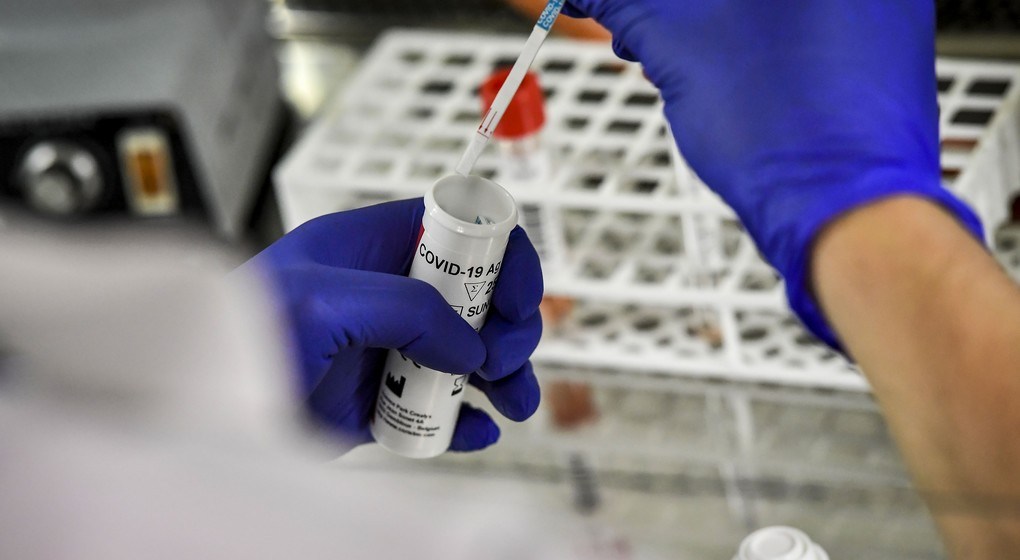Medical laboratories are being paid to carry out 2,500 Covid-19 tests every day in Belgium, even though they barely manage to do 2,000 tests a day, Het Nieuwsblad reports.
The eight university labs that help make up the federal testing platform in Belgium are given the financial resources to examine 2,500 tests per day — the government pays them a lump sum of €576,000 for this purpose every month — but they barely process a few hundred PCR tests per day.
Each lab receives €275,000 per lab (as agreed by the government when the labs were included in the platform), while they receive another monthly lump sum of €720,000, mainly for personnel costs.
The labs were meant to be able to process up to 7,000 PCR tests per day in case of emergency, however, in the autumn of 2021, it turned out that none of the eight labs was able to process 2,000 tests per day. This resulted in their monthly allowance being reduced to €270,000 for the first time.
Inbalance with tests being carried out
Two and a half years into the pandemic, every lab is still being paid €72,000, costing the government a total of €576,000 per month. With that, they should each be able to process 2,500 tests per day.
In contrast, the university labs have been processing fewer than 2,000 tests a day in recent months. Last month, 10,000 to 11,000 PCR tests per day were carried out, but on average, 85% of these went to laboratories in private and non-university hospitals.
This has resulted in one member of parliament, Frieda Gijbels (N-VA) calling on the government to "pull the plug on the federal platform," and to criticise the lack of transparency.
Related News
- Fewer than 1,000 Covid patients in hospitals for first time this summer
- Coronalert app faces uncertain future
"The university laboratories themselves have indicated that there were surpluses, but Health Minister Frank Vandenbroucke never wanted to tell me what happens to them. Meanwhile, millions of euros are being handed out."
However, Vandenbroucke said he is not yet looking to shut down the federal platform, saying it can be used if there is a need to scale up," he says. "We don't want to be caught off guard by capacity shortages in the private market a second time." The current agreement expires at the end of October.

